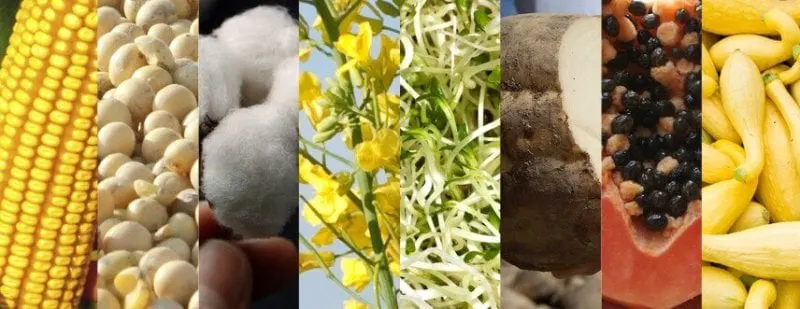Viewpoint: With more than 70 countries producing GM foods, it’s time to get beyond tired debate over technology and embrace innovation
Viewpoint: With more than 70 countries producing GM foods, it’s time to get beyond tired debate over technology and embrace innovation


Transgenics began nearly three decades ago in world agriculture with the aim of increasing agricultural productivity. In other words, produce more food for the global population.
And it has worked! In 1996, 1.7 million hectares were cultivated with transgenics in the world. In 2018, this area jumped to 191.7 million hectares, an increase of 113 times. More than 70 countries produce this type of food (with the strictest rules and laws and a lot of research behind it). Brazil is the second largest producer, only behind the United States.
Furthermore, many of our daily treats, which you may be eating while reading this column, even without paying attention, probably have some transgenic food in the composition. Want proof? Oils, flour, cassava, cereals, margarine, mayonnaise, cake, pudding, chocolate, macaroni, cheese and yogurt (the list is enormous) are produced with transgenic ingredients.
So, instead of worrying about terms and symbols, which are checked by researchers, doctors and nutritionists before going to the supermarket gondola, enjoy the soy in your salad or your vegan hamburger or even that fried pastry in hot oil and leave the myths involving transgenics and vaccines for the class of WhatsApp fake news.
[Editor’s note: This article was originally published in Portugese and has been translated and edited for clarity.]
This is an excerpt. Read the original post here.

 | Videos | More... |

Video: Nuclear energy will destroy us? Global warming is an existential threat? Chemicals are massacring bees? Donate to the Green Industrial Complex!
 | Bees & Pollinators | More... |

GLP podcast: Science journalism is a mess. Here’s how to fix it

Mosquito massacre: Can we safely tackle malaria with a CRISPR gene drive?

Are we facing an ‘Insect Apocalypse’ caused by ‘intensive, industrial’ farming and agricultural chemicals? The media say yes; Science says ‘no’
 | Infographics | More... |

Infographic: Global regulatory and health research agencies on whether glyphosate causes cancer
 | GMO FAQs | More... |

Why is there controversy over GMO foods but not GMO drugs?

How are GMOs labeled around the world?

How does genetic engineering differ from conventional breeding?
 | GLP Profiles | More... |

Alex Jones: Right-wing conspiracy theorist stokes fear of GMOs, pesticides to sell ‘health supplements’




 Viewpoint — Fact checking MAHA mythmakers: How wellness influencers and RFK, Jr. undermine American science and health
Viewpoint — Fact checking MAHA mythmakers: How wellness influencers and RFK, Jr. undermine American science and health Viewpoint: Video — Big Solar is gobbling up productive agricultural land and hurting farmers yet providing little energy or sustainabilty gains
Viewpoint: Video — Big Solar is gobbling up productive agricultural land and hurting farmers yet providing little energy or sustainabilty gains Trust issues: What happens when therapists use ChatGPT?
Trust issues: What happens when therapists use ChatGPT? Fighting deforestation with CO2: Biotechnology breakthrough creates sustainable palm oil alternative for cosmetics
Fighting deforestation with CO2: Biotechnology breakthrough creates sustainable palm oil alternative for cosmetics California, Washington, Oregon forge immunization alliance to safeguard vaccine access against federal undermining
California, Washington, Oregon forge immunization alliance to safeguard vaccine access against federal undermining 30-year-old tomato line shows genetic resistance to devastating virus
30-year-old tomato line shows genetic resistance to devastating virus The free-range chicken dilemma: Better for birds, but with substantial costs
The free-range chicken dilemma: Better for birds, but with substantial costs ‘You have to treat the brain first’: Rethinking chronic pain with Sanjay Gupta
‘You have to treat the brain first’: Rethinking chronic pain with Sanjay Gupta
